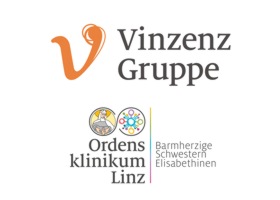Stättermayer, Albert Friedrich, Stauber, Rudolf, Hofer, Harald, Rutter, Karoline, Beinhardt, Sandra, Scherzer, Thomas Matthias, Zinober, Kerstin, Datz, Christian, Maieron, Andreas, Dulic-Lakovic, Emina, Kessler, Harald H, Steindl-Munda, Petra, Strasser, Michael, Krall, Christoph und Ferenci, Peter
(2011)
Impact of IL28B genotype on the early and sustained virologic response in treatment-naïve patients with chronic hepatitis C.
Clinical gastroenterology and hepatology : the official clinical practice journal of the American Gastroenterological Association, 9 (4).
344-350.e2.
ISSN 1542-7714
Für diesen Eintrag wurde kein Volltext-Dokument angefügt.
Kurzfassung
BACKGROUND & AIMS
Single nucleotide polymorphisms (SNPs) in the gene that encodes interleukin (IL)-28B predict response of patients with chronic hepatitis C to antiviral therapy. We investigated the roles of polymorphisms rs12979860 and rs8099917 on the early virologic response of treatment-naïve patients.
METHODS
SNPs were identified by real-time polymerase chain reaction analysis of samples from 682 patients (genotype [GT]1=372, GT2/3=208, GT4=102) who were treated with 180 μg pegylated interferon-α2a and 400 or 800 mg (GT2/3, depending on the protocol) or 1000-1200 mg (GT1/4) ribavirin/day. The duration of treatment was 24 (GT2/3) or 24-72 weeks (GT1/4).
RESULTS
Patients with C/C also had higher rates of rapid virologic response (RVR) (GT1, 38.3% vs 11.6%; GT4, 76.5% vs 23.5%; both P<.001) and sustained virologic responses (SVRs) (GT1, 79.1% vs 43.2%; GT4, 85.3% vs 44.1%; both P<.001). In patients with GT2/3, the RVR was more frequent in carriers of C/C (75.3% vs 52.6%, P<.01), but SVR rates were similar between those with C/C and T (80.5% vs 74.4%, P=.31). Results for rs8099917 were comparable. The positive predictive value of rs12979860 C/C for SVR was higher than that of rs8099917 T/T (80.5% vs 71.6%). Overall, RVR was the best predictor of SVR. In patients who did not have GT1, IL28B polymorphisms did not affect the SVR if RVR data were included in the multivariate analysis.
CONCLUSIONS
An early virologic response to pegylated interferon and ribavirin is more likely among carriers of rs12979860 C/C and rs8099917 T/T, which might underlie their high rates of SVR. Determination of the IL28B genotype and whether patients have an RVR might be used in future studies of patients with hepatitis C virus genotype 1 or 4.
Actions (login required)

- Eintrag anzeigen


 Tools
Tools Tools
Tools